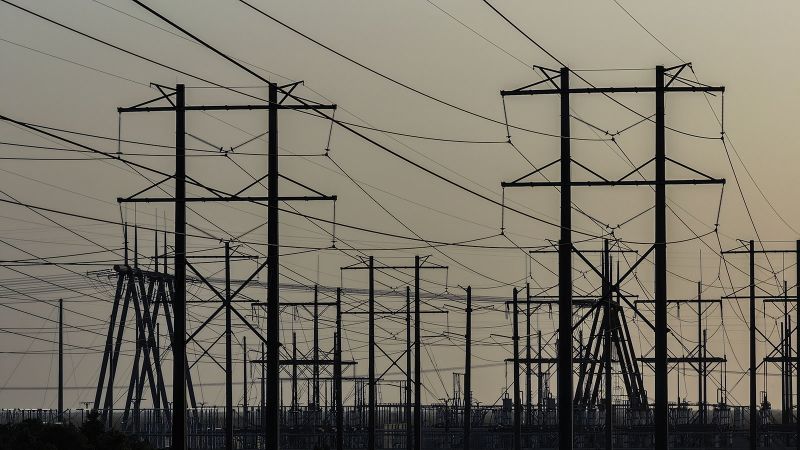- Get link
- X
- Other Apps
- Get link
- X
- Other Apps

US Braces for Potential Iranian Cyberattacks After Airstrikes
Following recent US airstrikes on Iranian nuclear sites, critical infrastructure across the United States, including hospitals, water dams, and power plants, are on high alert for potential retaliatory cyberattacks from Iran. The situation underscores the increasingly interconnected nature of global conflict and the significant role cyberspace plays in modern warfare.
The US's decisive action of bombing three nuclear sites inside Iran on Saturday has dramatically heightened tensions. In the aftermath, the US power grid’s cyberthreat-sharing center has been actively monitoring the dark web for any signs of Iranian activity. Hospital executives are also in close contact with the FBI to assess and mitigate potential threats. This heightened vigilance is a proactive measure, recognizing that cyber warfare offers Iran a readily available and potentially deniable avenue for retaliation.
Adam Meyers, a senior vice president at cybersecurity firm CrowdStrike, emphasized the urgency of the situation, stating, "Iran’s kinetic retaliation is already in motion, and the digital dimension to that may not be far behind." He added, "This cyber element is what lets them extend their reach, and there’s an air of deniability to it."
Here are some key takeaways from the current situation:
- Critical infrastructure is particularly vulnerable and on high alert.
- Tehran-linked hackers have a history of targeting American hospitals and water facilities.
- No new confirmed breaches have been reported, but Iranian-linked hackers are actively scanning for vulnerabilities.
While President Trump announced a ceasefire between Israel and Iran shortly after Iranian missile strikes targeting a US military base in Qatar, the long-term stability of the region remains uncertain. A Department of Homeland Security bulletin warned of the potential for Iran to target American government officials if its leadership perceives a threat to the regime's stability.
Cyberattacks require less planning than traditional warfare and can operate below the threshold of armed conflict. US officials have noted Iran's history of opportunistically exploiting vulnerabilities in US critical infrastructure.
The Cybersecurity and Infrastructure Security Agency (CISA) is actively coordinating with government, industry, and international partners to share intelligence and bolster collective defense. "There are currently no specific credible threats against the homeland," CISA spokesperson Marci McCarthy stated, but the agency remains vigilant.
Recent history provides a stark reminder of Iran’s capabilities. Following the start of the Israel-Gaza war in the fall of 2023, US water facilities experienced multiple cyberattacks attributed to Iran’s Islamic Revolutionary Guard Corps. One notable incident involved hackers breaching a water plant outside of Pittsburgh and posting an anti-Israel message.
Anne Neuberger, former deputy national security adviser for cyber and emerging technology under President Joe Biden, pointed out that “Iranian cyberattacks have been plays for attention as well as impact,” indicating a dual motive of disruption and propaganda.
Cybersecurity experts are urging vigilance without creating undue alarm. John Riggi, a former FBI official and current national advisor for cybersecurity and risk at the American Hospital Association, stated that his association "is in close coordination with the FBI regarding any physical or cyber threats to hospitals and the broader healthcare sector."
While Iran's cyber capabilities may not match those of China or Russia, its willingness to conduct aggressive operations makes it a significant threat. The FBI has previously blamed Tehran for cyberattacks on Boston Children’s Hospital and for creating a website that threatened US election officials.
The Office of the Director of National Intelligence warned in March that "Iran’s growing expertise and willingness to conduct aggressive cyber operations make it a major threat to the security of U.S. networks and data." This underscores the need for continuous vigilance and proactive cybersecurity measures across all sectors of American infrastructure.
In conclusion, the potential for Iranian cyberattacks represents a serious and evolving threat landscape. The US government and private sector must remain vigilant, share intelligence effectively, and strengthen their collective defenses to protect critical infrastructure and national security. The coming days and weeks will be critical in determining the extent and impact of any Iranian cyber retaliation.
Tags: US airstrikes, Iran, cyberattacks, US power grid, nuclear sites, dark web, Tehran hackers, American hospitals, water facilities, cyber threat
Source: https://edition.cnn.com/2025/06/24/tech/iran-cyberattack-fears-us
American hospitals
cyber threat
cyberattacks
dark web
Iran
nuclear sites
Tehran hackers
US airstrikes
US power grid
water facilities
- Get link
- X
- Other Apps
Comments
Post a Comment